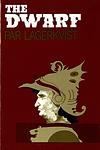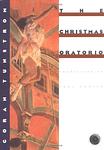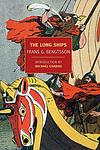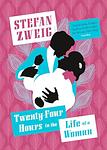The Greatest Swedish, Austrian "Fiction" Books Since 1900
Click to learn how this list is calculated.
This list represents a comprehensive and trusted collection of the greatest books. Developed through a specialized algorithm, it brings together 300 'best of' book lists to form a definitive guide to the world's most acclaimed books. For those interested in how these books are chosen, additional details can be found on the rankings page.
Genres
Countries
Date Range
Reading Statistics
Click the button below to see how many of these books you've read!
Download
If you're interested in downloading this list as a CSV file for use in a spreadsheet application, you can easily do so by clicking the button below. Please note that to ensure a manageable file size and faster download, the CSV will include details for only the first 500 books.
Download-
1. The Man Without Qualities by Robert Musil
"The Man Without Qualities" is a satirical novel set in Vienna during the last days of the Austro-Hungarian Empire. It follows the life of Ulrich, a thirty-two-year-old mathematician, who is in search of a sense of life and reality but is caught up in the societal changes and political chaos of his time. The book explores themes of existentialism, morality, and the search for meaning in a rapidly changing world.
-
2. Pippi Longstocking by Astrid Lindgren
The book tells the story of Pippi Longstocking, a young girl with superhuman strength who lives alone in a colorful house in a small Swedish village. With her pet monkey and horse, Pippi embarks on a series of humorous and often absurd adventures, defying societal norms and adult authority with her unconventional wisdom and moral code. Despite her wild antics, Pippi's kindness, generosity, and courage make her a beloved figure in her community.
-
3. Death of Virgil by Hermann Broch
The novel explores the final hours of the Roman poet Virgil, who, while on his deathbed, contemplates the value and impact of his life's work, particularly his unfinished epic, the Aeneid. The narrative is a complex, stream-of-consciousness meditation on art, life, and death, with Virgil wrestling with his desire to burn his epic and the emperor's command to preserve it. The book delves into themes of the meaning of human existence, the role of art in society, and the clash between the individual's inner world and the external world.
-
4. The Confusions of Young Törless by Robert Musil
This novel explores the moral and psychological development of a young student sent to a military boarding school in Austro-Hungarian Empire. The protagonist witnesses and participates in the bullying and humiliation of a fellow student, leading him to question the nature of power, morality, and the thin line between civilization and barbarity. The book is a profound exploration of adolescence, authority, and the loss of innocence.
-
5. The Radetzky March by Joseph Roth
"The Radetzky March" is a historical novel that explores the decline and fall of the Austro-Hungarian Empire through the experiences of the Trotta family, across three generations. The narrative begins with Lieutenant Trotta, who saves the life of the Emperor during the Battle of Solferino, and follows his descendants as they navigate the complexities of life in the empire. The novel delves into themes of duty, honor, and the inevitability of change, painting a vivid picture of a society in decline.
-
6. The Royal Game by Stefan Zweig
"The Royal Game" is a gripping novella about a man who, while in solitary confinement by the Nazis, steals a book of past chess games and plays them all in his mind to keep his sanity. Once freed, he becomes a chess master but his mental state is fragile. On a cruise ship, he is challenged to a game by the reigning world champion, leading to a psychological battle that pushes him to the brink of madness.
-
7. The Sleepwalkers by Hermann Broch
"The Sleepwalkers" is a trilogy that explores the psychological transformation and moral decay of German society between 1888 and 1918. The narrative follows three main characters: Joachim von Pasenow, a romantic military officer; August Esch, a pragmatic bookkeeper; and Claus von Pasenow, an intellectual and World War I soldier. The book uses these characters to depict the shift from a stable, traditional society to a modern, aimless one, examining the individual's struggle with societal change and the disintegration of values.
-
8. Barabbas by Par Lagerkvist
This novel tells the story of Barabbas, the man who was pardoned instead of Jesus Christ, according to the New Testament. After being released, Barabbas grapples with his newfound freedom and the guilt of being spared at the expense of Jesus. As he witnesses the rise of Christianity and the profound impact Jesus' teachings have on those around him, he struggles with his own beliefs and the meaning of his existence. The narrative explores themes of faith, redemption, and the human condition.
-
9. The Girl with the Dragon Tattoo by Stieg Larsson
A disgraced journalist is hired by a wealthy industrialist to solve a forty-year-old mystery involving the disappearance of his niece. He is assisted in his investigation by a brilliant but deeply troubled hacker. As they delve deeper into the mystery, they uncover a twisted web of family secrets, corruption, and murder. The story is a dark and gripping exploration of Swedish society, as well as a thrilling mystery.
-
10. The Dwarf by Par Lagerkvist
"The Dwarf" is a dark, philosophical novel set in the Italian Renaissance, narrated by a malevolent court dwarf who serves a prince. The dwarf is a symbol for the darker side of humanity, embodying all the malice, deceit, and manipulation that one can possess. His actions and viewpoint provide a cynical commentary on human nature and the moral complexities of power, war, and love. The novel explores themes of good and evil, faith and doubt, and the destructive side of human nature.
-
11. Correction by Thomas Bernhard
"Correction" is a complex narrative revolving around the life of a man named Roithamer, a genius obsessed with constructing an architectural masterpiece, the Cone, in the center of the Kobernausser forest. The story is told through the perspective of his friend who is reading Roithamer's notes after his suicide. The novel explores themes of obsession, isolation, and the pursuit of perfection, while also delving into the protagonist's troubled relationships with his family and society.
-
12. The Piano Teacher by Elfriede Jelinek
"The Piano Teacher" is a dark exploration of power dynamics, sexuality, and repression. The story revolves around a piano teacher at a prestigious music school in Vienna who lives with her overbearing mother in a state of emotional and sexual repression. Her life takes a turn when she becomes sexually involved with a young, self-assured student. The relationship, marked by sadomasochistic games and emotional manipulation, spirals out of control, leading to a tragic end. The book is a profound critique of bourgeois values and the oppressive structures of society.
-
13. The Christmas Oratorio by Göran Tunström
"The Christmas Oratorio" is a poignant story set in a small Swedish town, revolving around a boy who loses his mother and his relationship with his silent, grieving father. The narrative is deeply embedded in music, specifically Bach's Christmas Oratorio, which becomes a source of solace for the boy. The tale is a rich tapestry of love, loss, and the healing power of music, exploring the deep emotional bonds between father and son, and the transformative power of art.
-
14. Faceless Killers by Henning Mankell
In this thrilling crime novel, an elderly farmer and his wife are brutally murdered and the only clue is the wife's dying word: "foreign." This sets off a series of events that involves a dedicated detective who must solve the crime while dealing with his own personal problems. The investigation becomes even more complex when the press catches wind of the dying word, sparking a wave of xenophobia in the community. The detective must navigate through the fear and prejudice to find the truth and bring the killers to justice.
-
15. The Laughing Policeman by Maj Sjöwall, Per Wahlöö
In this gripping crime novel, a mass shooting on a bus in Stockholm leaves eight people dead, including a police officer. Inspector Martin Beck and his team are assigned to solve the case, but as they delve deeper, they uncover a complex web of corruption and deceit within the police force. With time running out, Beck must navigate through a labyrinth of clues and personal vendettas to catch the laughing policeman responsible for this heinous act.
-
16. Extinction by Thomas Bernhard
"Extinction" is a novel that explores the dark and complex themes of family, identity, and history through the eyes of its protagonist, a professor living in Rome. When he receives news of the deaths of his parents and brother in a car accident, he is forced to confront his past and his Austrian heritage. The narrative delves into his thoughts and feelings, his criticisms of his family and society, and his philosophical musings on life and death, all while he prepares to return to his family's estate for the funeral. The novel is renowned for its dense, stream-of-consciousness style and its unflinching examination of the human condition.
-
17. The Forty Days Of Musa Dagh by Franz Werfel
This novel is a gripping historical fiction that recounts the harrowing tale of Armenian villagers who resist their deportation by the Ottoman Empire during the Armenian Genocide of 1915. Centered around the heroic stand of the people of Musa Dagh, the narrative delves into the struggle for survival, unity, and defiance against overwhelming odds. Through the lens of this resistance, the book explores themes of identity, resilience, and the human spirit's capacity to fight for freedom and justice. It serves as a poignant reminder of a dark chapter in history, highlighting the courage and determination of those who fought against their oppressors.
-
18. Simon and the Oaks by Marianne Fredriksson
"Simon and the Oaks" is a poignant tale set against the backdrop of World War II, depicting the life of a young Swedish boy, Simon, who comes from a working-class family but dreams of a world beyond his own. His life changes when he befriends Isak, a boy from a wealthy Jewish family fleeing from Nazi Germany. The book explores their friendship, the stark contrast between their worlds, their shared love for literature and music, and the impact of war on their lives. It also delves into themes of identity, love, loss, and the enduring power of human spirit.
-
19. The Long Ships by Frans G. Bengtsson
"The Long Ships" is a historical fiction novel centering around the Viking era. The story follows the adventures of a young Viking named Red Orm who is kidnapped by other Vikings, becomes a slave, then a chieftain's henchman, a merchant, explorer, and a soldier. His adventures take him from his native Sweden to Spain, England, Denmark, and Ireland. The novel explores the political, religious, and cultural landscapes of the era, providing a detailed and engaging portrayal of the Viking world.
-
20. The Emigrants by Vilhelm Moberg
"The Emigrants" is a historical novel that follows the journey of a Swedish farming family who, driven by poverty and religious persecution, decide to emigrate to America in the mid-19th century. The narrative explores their struggles and hardships, from the decision to leave their homeland, the arduous journey across the Atlantic, to their eventual settlement in Minnesota. The book provides a profound and realistic depiction of the immigrant experience, highlighting the courage, determination, and resilience of the emigrants.
-
21. Concrete by Thomas Bernhard
The book is a darkly introspective narrative that delves into the mind of a reclusive, obsessive intellectual who is struggling to complete his scholarly work on the composer Mendelssohn. As he grapples with his own ailments and the perceived mediocrity of his surroundings, the protagonist's stream-of-consciousness monologue reveals his deep-seated anxieties, self-loathing, and profound isolation. The narrative is a relentless examination of the protagonist's psyche, showcasing his critical view of society and his own personal relationships, which are fraught with tension and dysfunction. Through this, the novel explores themes of artistic creation, intellectual elitism, and the suffocating nature of expectations and familial obligations.
-
22. Woodcutters by Thomas Bernhard
Woodcutters is a darkly humorous critique of Vienna's artistic elite. The story takes place over the course of a single evening, as the narrator attends a dinner party in honor of a recently successful actor. As the evening progresses, he reflects on the pretentiousness and hypocrisy of the guests, the mediocrity of their artistic achievements, and the tragic suicide of his former lover. The novel is a scathing indictment of the vanity and self-delusion of the artistic community.
-
23. Twenty Four Hours In The Life Of A Woman by Stefan Zweig
The novella delves into the intense emotional landscape of a middle-aged English widow who, while staying at a Riviera resort, becomes deeply fascinated by the plight of a young man consumed by a gambling addiction. Over the course of a day, their lives intertwine, leading her to reflect on the nature of obsession and the fleeting moments of passion that can irrevocably alter one's life. As she recounts her own story of moral and emotional upheaval, the narrative explores themes of societal expectations, personal liberation, and the profound impact of ephemeral encounters.
-
24. The Wall by Marlen Haushofer
The book is a profound exploration of isolation and survival, following a woman who finds herself unexpectedly cut off from the rest of the world by an invisible, impenetrable wall. With the rest of humanity seemingly vanished, she must come to terms with her solitary existence in a remote forested area, accompanied only by a few animals. As she adapts to her new reality, tending to the land and the creatures that become her companions, the narrative delves into themes of self-reliance, the intrinsic connection between humans and nature, and the resilience of the human spirit in the face of unimaginable circumstances. Through her introspective journey, the protagonist examines the essence of her being and the meaning of life when stripped of society and its constructs.
-
25. Confusion by Stefan Zweig
"Confusion" is a compelling narrative that explores the intense and passionate relationship between a student and his charismatic professor. Set in the early 20th century, the story unfolds as the protagonist becomes entangled in the professor's personal life, discovering his mentor's secret past, his struggling marriage, and his hidden homosexual desires. The book presents a profound exploration of human emotions, identity, and the complexities of love, against the backdrop of the societal norms of the time.
Reading Statistics
Click the button below to see how many of these books you've read!
Download
If you're interested in downloading this list as a CSV file for use in a spreadsheet application, you can easily do so by clicking the button below. Please note that to ensure a manageable file size and faster download, the CSV will include details for only the first 500 books.
Download























